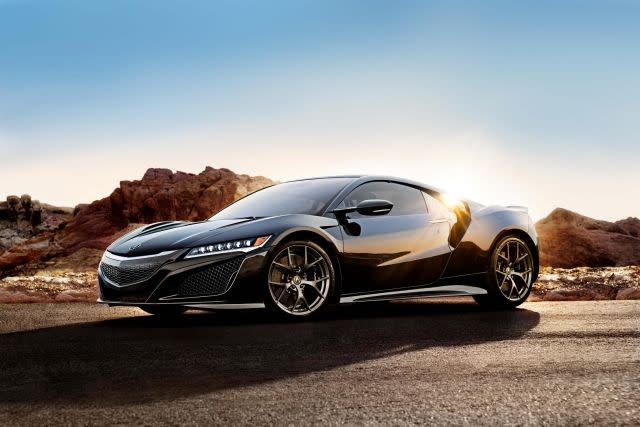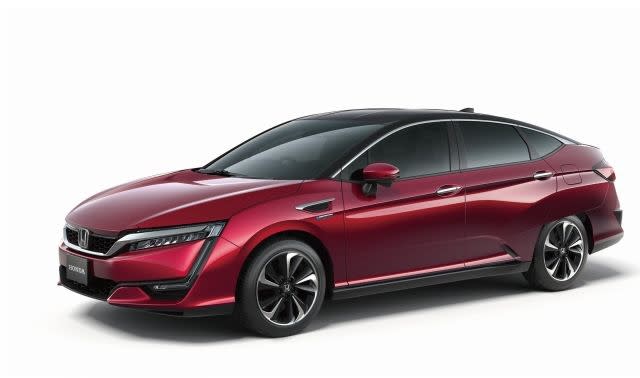CORRECTION: Honda’s hybrid hypercar and hydrogen fuel cell plans take shape
[Corrects year in third paragraph of original production timeframe target to 'end of 2015'] Ahead of the official opening of the 44th International Tokyo Motor show, Honda has finally announced the performance specifications for its long-awaited supercar, the NSX, and detailed a new partnership with General Motors in order to develop hydrogen fuel cell technology.
The wait for the second-generation Honda Acura NSX is almost over. After four years of prototyping, developing, teasing and testing, the hybrid sportscar is ready to go on sale...nearly.
Honda wanted to start production before the end of 2015 but has decided that the car still isn't completely perfect so is pushing back its launch until early 2016.
However, to ensure that fans aren't too disappointed, it has finally verified the car's performance figures and they're truly impressive. Thanks to three electric motors plus a twin-turbo V6 VTEC engine, the car delivers over 570bhp and can send different levels of power to each of the four wheels. The result is 0-100km/h in 2.9 seconds and a top speed of 305km/h.
And, the hybrid all-wheel-drive set-up not only boosts acceleration, it will bring new levels of stability and stop the body from rocking and rolling in the corners via the wheels themselves.
"With the development of the Sport Hybrid Super-Handling All Wheel Drive System, we can take advantage of the superior responsiveness of the electric motor characteristics within the system powered by an independent Battery to significantly expand the benefits of direct yaw control," said Ted Klaus, Acura NSX Global Development Leader.
In other words, true hybrid supercar performance and technology like a Ferrari LaFerrari or McLaren P1. However, at an estimated $150,000 it will be a fraction of the cost of either and much more practical. Honda is positioning the car as a more eco-friendly, sportier alternative to the Porsche 911.
Honda's ultimate aim is to use the NSX as a rolling test bed for technologies that will soon permeate its Acura and Honda mass-market ranges, and the first innovations will arrive within the next two years on the next Civic.
The company is putting the finishing touches to new turbocharged VTEC units that can serve up more power, torque and performance than naturally aspirated engines but at 1.5-liters and just 1-liter, will use considerably less fuel in order to do so. "We are responding to the market demand and the rising trend for increased fuel efficiency without compromising on power," said Philip Crossman, Managing Director at Honda UK.
The new Civic will be unveiled at the 2017 Frankfurt motor show but at this year's Tokyo show, Honda will be presenting its new hydrogen fuel cell car and alongside it a new partnership with General Motors. The two companies are to pool their resources in order to develop new hydrogen fuel cell technology that both can integrate into their own vehicles.



